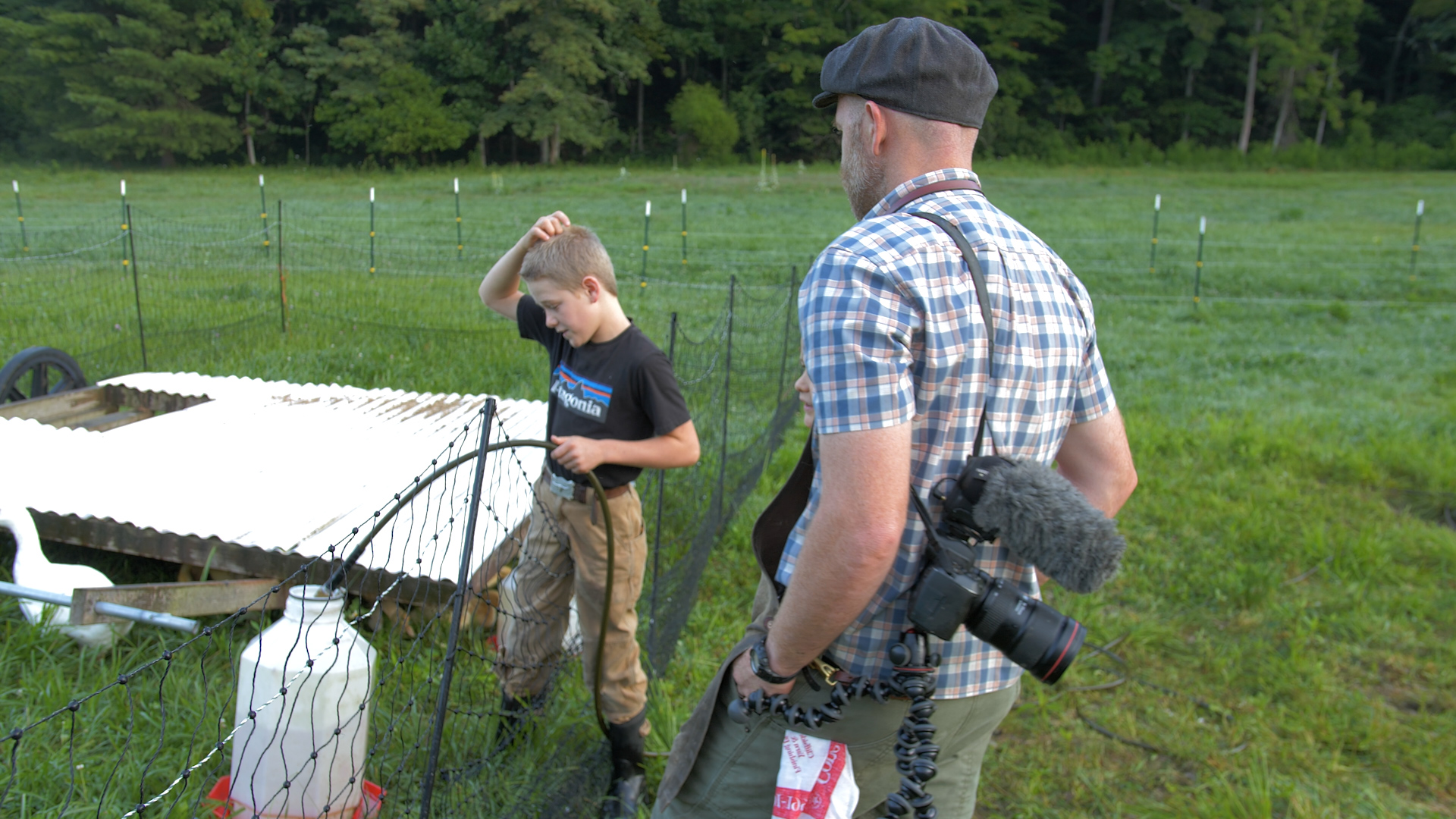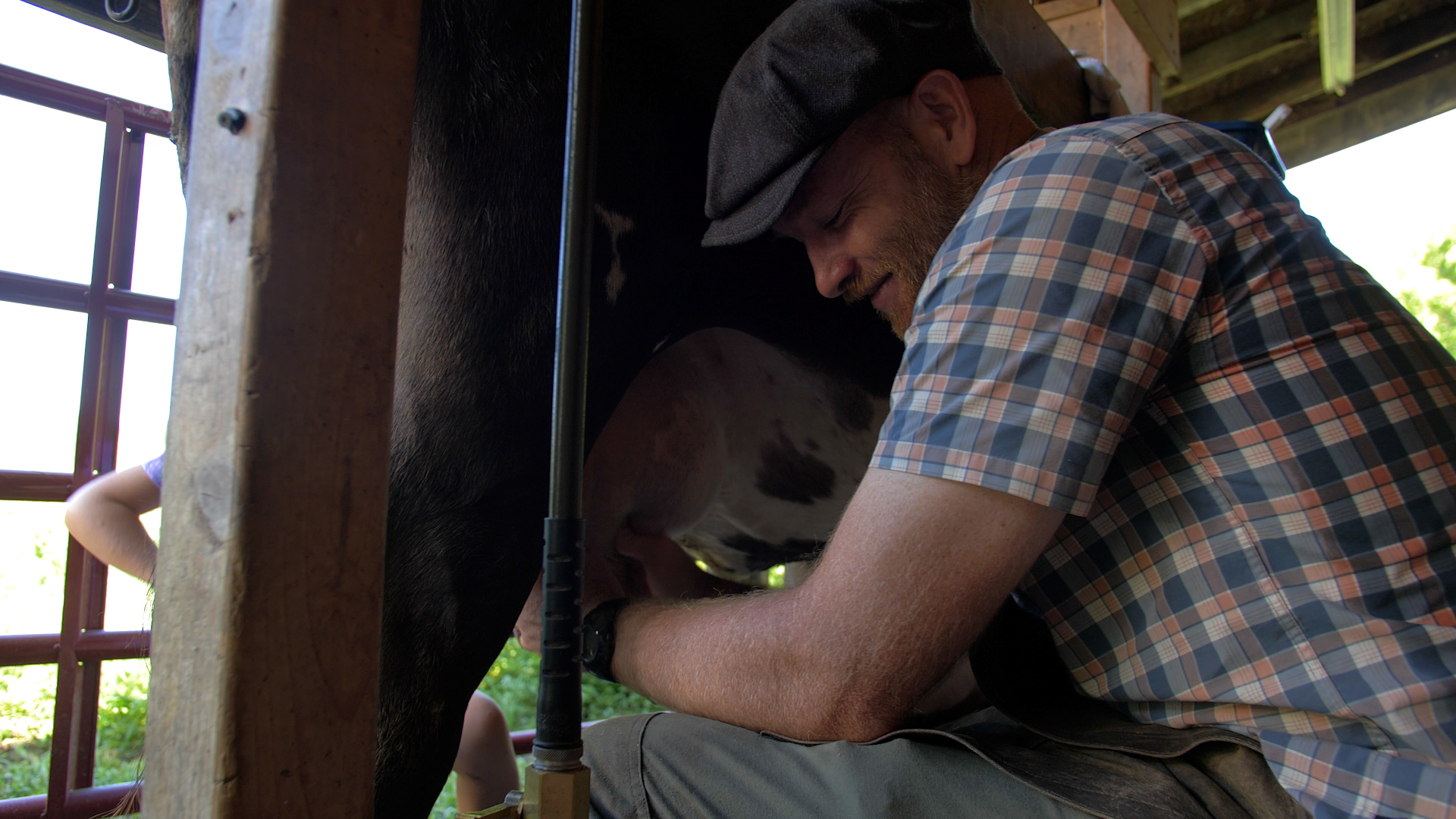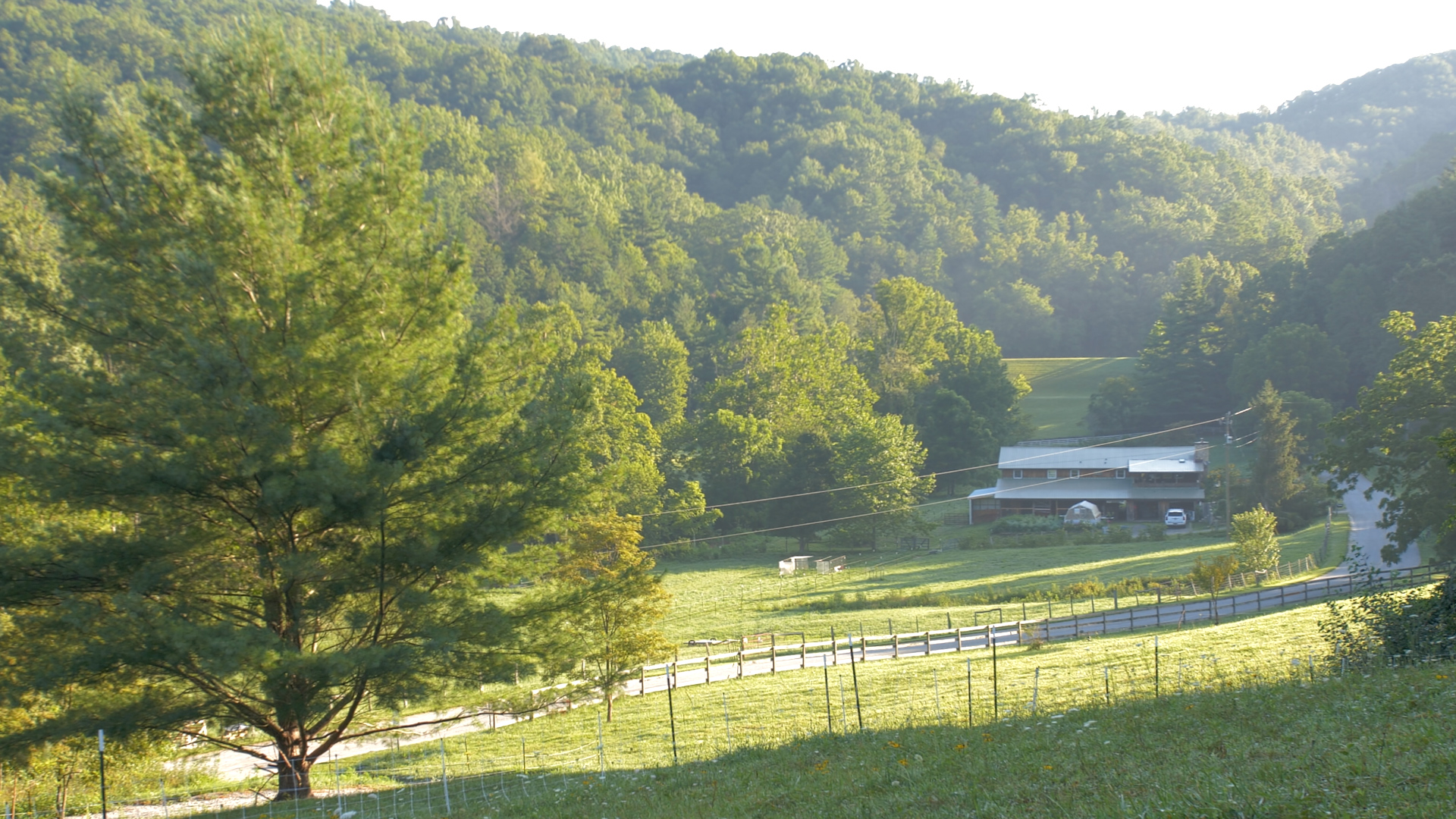Fletcher, North Carolina – On a small family farm tucked in the hills of North Carolina, Justin Rhodes begins morning before 7 am, moves chicken, feeds cows and prepares for the camera. For more than a million subscribers, Rhodes is not just a farmer. It is a guide, teacher and storytelling narrators that turned his home into a prosperous institution on the Internet.
“If I am in an elevator and ask someone what I do, I say I am studying others and inspire others to develop their food,” said Rhodes. “This is the short answer.”
The long answer is more complex. Rhodes is a self -made businessman who is devoted daily about his life that raises animals, cultivating vegetables, and home education for his children and tending to the land that has been in his family for generations. YouTube, Justin Rhodes, obtained loyal followers of the viewers hungry for practical knowledge and taste for a different way to live.
But do not make mistakes. “This is not just fresh eggs and children smiling,” he said. “It is the harsh hands, the lost tools, and the barefoot chase who lost their shoes again. Difficult homes. This makes them beautiful.” This honesty, associated with practical education, has become its signature, whether on YouTube or its blog, And VirbermakiruriWhere he publishes advice, guidance and meditation on the life of the farm. Its subscription platform, Abundance+, extends that task by providing in -depth lessons, scenes videos and societal space for ambitious residents.
Rhodes lives on the same land that bought his grandfather once for $ 500-half a year at the time.
With his wife, companionship, and their five children, raise chicken, sheep, cows, ducks and pigs during the growth of vegetables, herbs and fruits. Even the front courtyard is part of the system, as it enriches the soil chickens next to the family garden.
Rebekah says that their lives have never been built for the camera. “We will do 100 percent whether or not we have a YouTube channel,” she said. You remember a small start with a first garden in 2005, then slowly add livestock and build the systems they use today. “You just have to start doing this and learn,” she said. “Once you get the infrastructure, it makes it much easier … it only becomes what you do and becomes the second nature.”

“On our farm, we do not sell eggs, do not sell cow meat, and do not sell pork. We grow all of this to consume us. My job is to inspire others to do this in a way similar to the house.”
Soon he noticed that although there were videos of educational agriculture, few showed the real life behind it, including chaos, accidents and small victories. “We are like an agricultural reality show,” said Rhodes. “People want to know: What does the expert do when everything happens?”
Its videos are honest and sometimes raw, with moments of joy that reduce the facts of livestock deaths, and the failure of crops and natural disasters. “Even my YouTube videos … with nice music, can be almost magic. This is why I am always trying to pick up the struggle,” he said.

It determines a house not depending on the size, but by intent. “You can include your window sill,” he said. “If you grow something that provokes you, this is a house.”
Looking at the future, Rhodes says his goal is to transfer the land, skills and values to the next generation, just as his grandfather and father did. “I want to make the world better for those who come after me,” he said.

“The grandfather has never met me, but he planted the trees that he took advantage of now.”